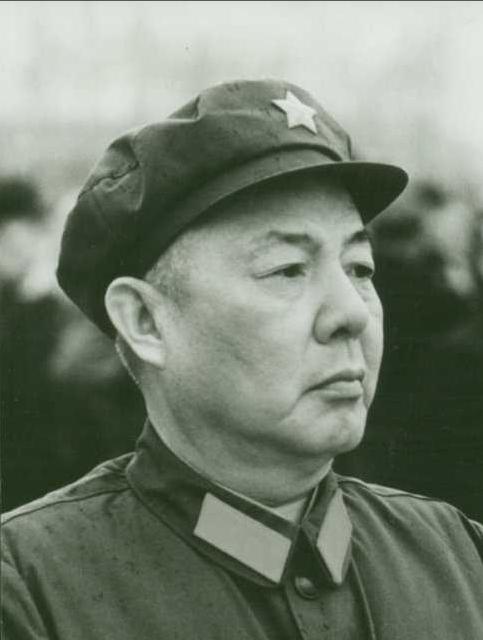Su Zhenhua is a general with little seniority and no small record.
Why?

In 1928, Su Zhenhua participated in the Pingjiang Rebellion and embarked on the revolutionary road, and later carried out armed struggle in the guerrillas.
The Pingjiang rebellion and the Pingjiang uprising led by Peng Dehuai are not the same thing. Therefore, in 1930, he joined the Red 5 Army led by Peng Dehuai with 37 people and became a member of the Red Army.
During the Red Army period, his highest position was regimental commissar. When New China was awarded the Order of Merit, he was awarded the Order of August 1 of the Second Class, which was not a very high position compared to other admirals. In order to obtain the Order of August 1 of the first class, it is necessary to hold a position of division level or above.
Among the founding generals, there were not many people who won the second-class August 1st Medal, except for him, only Tang Liang and Wei Guoqing.
Although Su Zhenhua's achievements in the Red Army period were inconspicuous, he achieved great achievements and made great contributions during the War of Resistance Against Japanese Aggression and the War of Liberation.
During the War of Resistance Against Japanese Aggression, he served as the political commissar of the Jiluyu Military Region, did a lot of pioneering work, and achieved quite good results.
During the Liberation War, he served as the political commissar of the 1st Column of the Jinji-Hebei Luyu Military Region, and was paired with Yang Dezhi and Yang Yong. The 1 column was the main force under Liu Deng's command, under the leadership of Nie Rongzhen of the Jin-Cha-Ji Military Region for a period of time. After returning to the establishment, Yang Yong and Su Zhenhua were paired, and the Battle of Southwest Lu, the Battle of Qianli Into Dabie Mountain, the Battle of Wandong, the Battle of Yudong, the Battle of Zhengzhou, and the Battle of Huaihai all made great achievements.
In 1949, he served as the political commissar of the 5 corps, went south to liberate Guizhou, and served as the number one party and government leader in Guizhou.
According to his record and position, he was rated as a regular corps member and was not affected by the low status during the Red Army period.
In 1954, he was transferred to the Navy as deputy political commissar, beginning a naval career spanning more than two decades.
In 1957, he was promoted to political commissar of the Navy and teamed up with Xiao Jinguang. Unfortunately, after 1967, he was dismissed from office and imprisoned. It was his wife who wrote many letters to complain that his situation improved.
In 1972, his problems were clarified, and Premier Zhou arranged for Su Zhenhua to return to work in the Navy according to Chairman Mao's instructions. He was initially appointed Second Commissar. He thought twice about it and found it difficult to complete the heavy trust.
He has not worked for 5 years, and he needs to be familiar with technical services such as the Navy. For this reason, he felt that he would take a deputy post and take a look at the troops.
According to his highly responsible attitude, the Central Committee first made him the first deputy commander of the Navy. After 8 months of understanding, he was appointed first political commissar and served as the first secretary of the party committee, becoming a decision-maker in the navy.
Before Su Zhenhua became the first secretary of the party committee, it was always Xiao Jinguang who served. Xiao Jinguang became the second secretary of the party committee in 1973, and from this point of view, everything in the navy was decided by Su Zhenhua.
Su Zhenhua not only held power in the navy, but was also appointed first secretary of Shanghai, which played a role in stabilizing the status quo in Shanghai.
Unfortunately, he died suddenly, suffering from a heart attack in 1979.